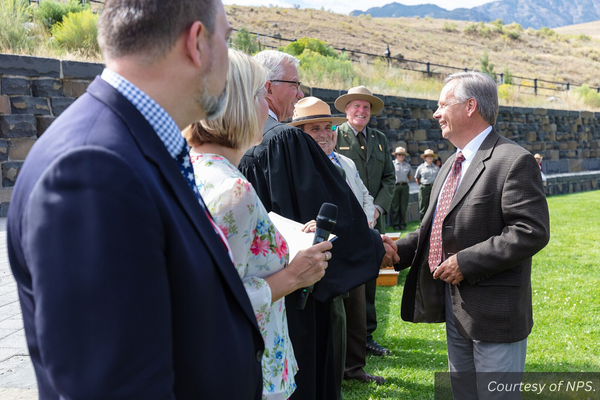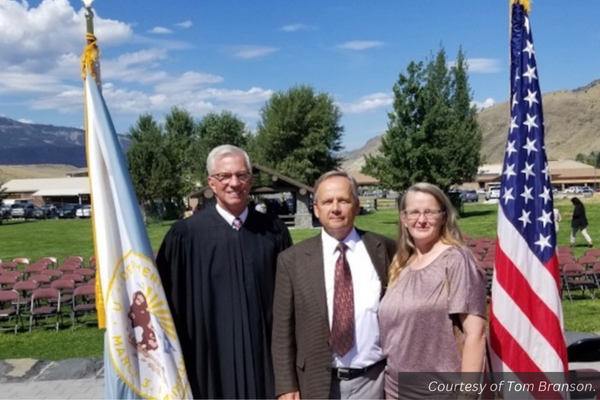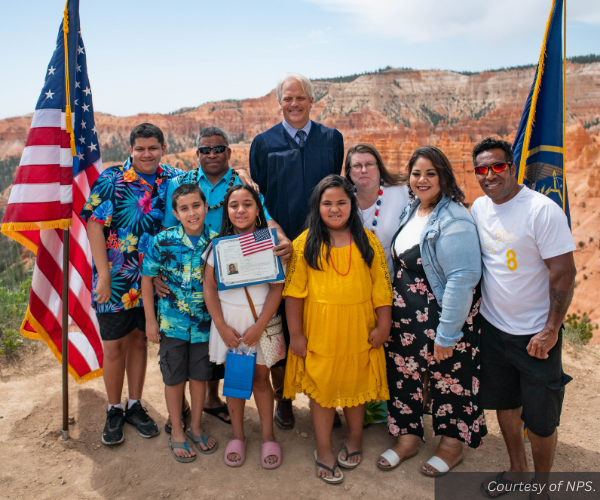“Why an ‘Outsider View’ of the Constitution Eludes Americans Today” is the third of four articles focused on defending the U.S. Constitution. These articles, written by The Byway‘s four editors, were published in the newspaper’s most recent September paper. Read the second article, “Our Divine Constitution,” here.
When Tom Branson moved to the United States, the first differences he noticed were mostly cultural. In Finland, where he grew up, people were more reserved, politically and socially.
He says there’s a joke that says, “How do you know an outgoing person in Finland?” The answer: “They’ll be looking at your toes instead of their own toes.”
As Tom became more familiar, though, with this country he was living in, he found that its Constitution allowed many more freedoms than that in his home country. And Americans talked about it.
“Americans are culturally more open,” he said, “more open to talk about religion and politics.”
Perhaps people’s eagerness to talk about freedoms stemmed from American exceptionalism. At the time, Tom would not have known. He was just a reserved young Finn with an accent and an outsider view telling him America was different somehow, so he stayed.
Now, 40 years later, most people would describe Tom as outgoing and politically active. And he was talking about the Constitution on the phone to me — a natural born citizen.
Too many Americans, myself included at times, have missed out on the Constitution, choosing to rail on the country for its many flaws instead of seeing the true good in its founding principles. They were not good sources, I reasoned. Tom, on the other hand, was an outside viewer on something so many natural born citizens take for granted: being an American.
Tom’s story, and the stories of other new citizens of the United States may teach us to catch the outsider view of the Constitution, and in so doing, catch its meaning for ourselves.

An Extremely Quick Summary of the Constitution
On the first page of our September issue, we gave an overview of the Constitution, and why the Founding Fathers felt it was a necessary document to create.
The United States Constitution that emerged outlined three branches of government, states rights, and the rights of the people in seven articles and just 4,543 words. The text set forth a process for amendments and ratification, and clarified the document’s position as the “supreme law of the land” above any government position taken by men.
The first ten amendments to the Constitution protect certain rights of citizens. These were added several years after the creation of the Constitution as a compromise with delegates who were worried about their rights getting trampled. Most of the seventeen amendments following these clarify who may enjoy these rights, as well as rein in some executive power.
There are a lot of things that the Constitution does not mention. Notably, the Constitution says nothing about immigration, healthcare, the environment, political parties, or many of the other enduring issues we deal with today. Instead, it sets forth the foundation of a government.
Governments in Other Countries
The U.S. Constitution is unique in that it is much older and has far fewer reforms than most other constitutions existing in the world today.
Finland, Tom’s home country, created its first constitution in 1919 after claiming independence from Russia. Three statutes functioned as its constitution for about 50 years, until reform began in the 1980s and 90s. This was around the time Tom immigrated to the United States.
Finland’s current government operates under a 1999 constitution as a parliamentary republic.
Many European countries have some variation of this parliamentary system, including the United Kingdom, Spain, the Netherlands, Germany, Italy and Latvia.
The United States Constitution has long been admired and held up as the gold standard for its longevity. And it has been the pattern for most constitutions across the world by virtue of its being practically the first of its kind.
Some argue, though, that Americans’ extreme veneration of the Constitution is not necessarily a good thing. This veneration, writes Aziz Rana, a Professor at Boston College of Law, came about in response to the World Wars and Cold War of the mid-1900s.
“For all the real benefits of the mid-century constitutional culture, today’s conditions nonetheless speak to how the rise of veneration has also undermined efforts to seriously question the text’s many limitations,” he writes in his article “Why Americans Worship the Constitution.”
It’s true that Americans are fooling themselves if they cannot admit that their Constitution has some flaws. The document has been accused of enabling two-party systems and white male supremacy. As Elaine writes, it also creates conditions in which a divided Congress cannot get much done.
Thus, I will not argue with the conclusion drawn by Aziz Rana that the Constitution is not perfect. But I will argue that some Americans do not understand the Constitution well enough to see anything but the flaws other people have pointed out. And anyone who believes the entire document is a lost cause is surely taking it for granted.
Tom Branson, our friend from Finland, shared this view. He lamented to me that many Americans are missing out on “really understanding what the Constitution means in terms of protecting our individual freedoms.”
“When you grow up in Europe, there are plenty who talk about, ‘we’re free,’ but in reality the government dictates a lot of what you can and can’t do,” he said.
As we saw earlier, a popular alternative to America’s gridlocked Congress is a parliamentary system. Many of these governments avoid gridlock and two-party systems by bypassing checks and balances. They give a lot of power to the governing body, and more of their policies tread on socialism.
That European style is alluring to many Americans today, but that is not what this country was founded on.
Catching an Outsider View
It is that understanding of what the Constitution really does for Americans, that people are missing out on.
Alarmed by growing misunderstanding of the Constitution, many state legislators have made civic education a requirement to graduate high school. By the year 2023, somewhere around 18 of the 50 states had this requirement, but it did not seem to be working. Young people still had a very low voter turnout, one national study showed.
So, how do we make the Constitution more than just words for people?
Some have advocated for even earlier civic education or not just being able to pass a civics exam, but the civics exam: the 100 questions of the U.S. naturalization test.
Studying to become a naturalized citizen is a “fairly good-sized process,” said Tom. “They give you quite a bit of material and some big booklets to study with.”
“It’s not a hard test by any means,” he said. In fact, prospective citizens are asked only 10 out of the 100 questions, and they only have to get six right. High school students don’t have it that easy. Still, “you do have to study for it. Not everyone passes,” Tom said.
After passing the test, prospective citizens are invited to a naturalization ceremony where they take an oath of citizenship. This usually happens in a government building somewhere, but in some special cases, they get to do it at a national park like Yellowstone or Bryce Canyon.

I was struck last year as I watched the Bryce Canyon naturalization ceremony. Suddenly, I felt a respect for my country that had been elusive to me in the past. Here were 20 brand new citizens from 10 different countries, and they were overjoyed at being able to join my country.
My heart was touched by the response of one woman from Mexico. “I want to use this as my public moment to say that I love America. I can’t believe I’m here,” she said. She described her respect for the U.S. Constitution. “It’s so well planned. It’s not man made. It’s God made.”
When I was at college, a professor challenged my group of incoming freshmen to figure out our “why” for being at that particular university. That challenge had a powerful influence on my view of the school I chose. I want to extend that same challenge to a bigger population, not just university students, but members of the United States. What is your “why” for living in the country that you do? What liberties would you hold sacred if you had an “outsider view” of the Constitution?
Allowing Americans to catch the view for themselves is going to be so much more powerful than making them study words on a paper. Understanding the Constitution might start with a standardized test, but Americans, especially young people, need to go further than that. They need to ask themselves “why?” and not be afraid of what answer they get.
For some people, the answer might be “I would leave if I could,” or “it would be better if … ” fill in the blank. But I’m willing to bet that for most people the answer is initially, “I don’t know.”
As for Tom Branson, he likes what this country was founded on. And so do I.
– by Abbie Call
Feature image caption: Viliami, of Samoa (second man from left) stands with his family and U.S. Magistrate Judge Dustin B. Pead after a special naturalization ceremony near Sunrise Point in Bryce Canyon National Park, June 29, 2023. That ceremony welcomed 20 new U.S. Citizens from 10 different countries.

Abbie Call – Cannonville/Kirksville, Missouri
Abbie Call is a journalist and editor at The Byway. She graduated in 2022 with a bachelor’s degree in editing and publishing from Brigham Young University. Her favorite topics to write about include anything local, Utah’s megadrought, and mental health and meaning in life. In her free time, she enjoys reading, hanging out with family, quilting and hiking.
Find Abbie on Threads @abbieb.call or contact her at abbiecall27@gmail.com.

